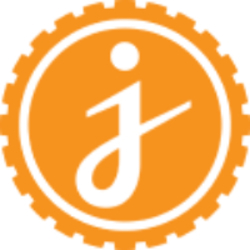A last-minute flight to Berlin, Germany, in 2008 changed the course of Pawel Chudzinski’s career and put him on the path to becoming Europe’s leading venture capital investor.
Chudzinski worked at US investment bank Greenhill in London, UK, helping chemical and automotive manufacturers close deals and raise funds. But work had slowed during the financial crisis. Then the Polish-born investor received a tip from a university friend about a booming angel investment in the heart of Berlin’s then-fledgling startup scene.
Chudzinski hopped on a plane to meet the founders of Niania, who were creating an online marketplace focused on Poland, and wrote them a $20,000 check right there from his savings. Within six months, Chudzinski left his job and moved to Germany’s capital to join his friend from university in backing and creating more startups like Niania. “I had some entrepreneurial friends and I had a big desire to be a part of this,” Chudzinski said.
It was a gamble to enter Berlin’s burgeoning startup scene early on, and it worked.
Chudzinski achieved one of his first exits when Niania was acquired by a Swiss publishing group just three years later. Almost 15 years later, Chudzinski is still based in Berlin and is now the co-founder of the venture fund Point Nine Capital, which manages $500 million. With five years of experience on the Midas List Europe, Forbes and Truebridge’s ranking of the continent’s best VCs, now tops our rankings thanks to a series of smart early bets on British fintech phenomenon Revolut, which raised a $45 billion valuation in August, the blockchain analysis Chainalysis, which is now valued at $8.6 billion, and healthcare booking unicorn Docplanner.
The investor, who is not seen by publicity, has not given an interview in years. When rumors began circulating last month that Point Nine was considering closing, it was founding partner Christoph Janz who denied them. And Chudzinski, 45, said a Forbes that nothing could be further from the truth; Rumors that the couple might be planning to retire are also not true. Point Nine is focused on raising a new fund and backing the next generation of founders.
For a German fund, Point Nine makes relatively few investments in Germany and, even more unusual for a European fund, writes a quarter of its checks in North America. It backed software-as-a-service (SaaS) powerhouse Zendesk (which went public for $1.7 billion in 2014), video recording tool Loom, and AI search tool Algolia to great success. “Sand Hill Row is the most competitive place in the world for venture capital, but the United States is much bigger than that,” Chudzinski told Forbes . “When it comes to software and SaaS, I think we can be fast, competitive and have strong opinions.”
Chudzinski has also made some side investments in marketplaces and consumer-focused companies that have paid off: In 2016, he invested in Revolut, a London-based digital bank, valued at $50 million. It is now worth $45 billion.
There have also been some failures. Chudzinski was an early investor in German electric scooter company Tier, which reached a valuation of $2 billion in 2021 thanks to an unreasonably exuberant $200 million in fundraising. Three years and a merger later, it was worth just $160 million.
While he has built his reputation on smart investments in financial technology and enterprise software, what Chudzinski is most excited about lately is the renewable energy sector. He has bet on startups like Amperecloud and Solarize, which create software for solar energy producers. “There is a huge need for our energy landscape to change,” he said. “Our perspective is software for the energy transition.”
Berlin and its billion-dollar valuations are a far cry from Zielona Góra (Polish for “green mountain”), where Chudzinski grew up with two parents who worked as construction engineers. He left home at the age of 16 to go to an experimental institute in Germany and then studied business at the Viadrina European University, where he met his fellow student Lukasz Gadowski, who offered him a job at Spreadshirt, his online t-shirt printing company. .
It was Gadowski who convinced Chudzinski to join his angel investment in Niana. After Chudzinski moved to Berlin, the couple teamed up with entrepreneur Kolja Hebenstreit in 2008 to found Team Europe, similar to another startup incubator called Rocket that was producing quick-and-dirty clones of popular American companies like Facebook or Groupon. “It was basically like the copy of the copy,” Hebenstreit laughs.
In 2009, Chudzinski met Janz, who had just sold his third startup, and in 2011 they formed Point Nine. One of his first investments was in Gadowski’s next project, the food delivery startup Delivery Hero, which went public in 2017 for $5.3 billion.
A constant succession of deals and departures followed. In 2019, Chudzinski was ranked 23rd on Europe’s Midas List; in 2021, 15th place; last year, 6th place. Now it has taken first place.
Chudzinski still considers himself an immigrant despite having lived longer in Germany than in Poland. Your old home and your new home have been transformed in that time. Poland’s GDP per capita nearly doubled in that period, while Berlin, which its mayor called “poor but sexy” thanks to chronic unemployment, is now one of Europe’s biggest tech hubs. “It’s incredible,” says Chudzinski. “As incredible as the development of the technological ecosystem in Europe.”
This article was originally published by Forbes US.
You may be interested in Forbes in Spanish: This is the Forbes list of the most powerful women in the world in 2024







































